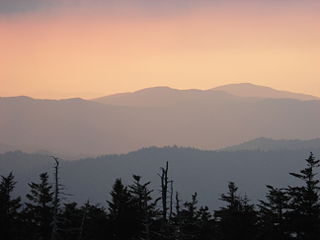Field work or Fieldwork may refer to:
- Field work (scientific method)
- Field fortifications
- Fieldwork novel by American journalist Mischa Berlinski
- Field Work, poetry collection by Seamus Heaney
Field work or Fieldwork may refer to:
Ethnology is an academic field that compares and analyzes the characteristics of different peoples and the relationships between them.

Ethnomusicology is the study of music from the cultural and social aspects of the people who make it. It encompasses distinct theoretical and methodical approaches that emphasize cultural, social, material, cognitive, biological, and other dimensions or contexts of musical behavior, in addition to the sound component.

Ethnography is a branch of anthropology and the systematic study of individual cultures. Ethnography explores cultural phenomena from the point of view of the subject of the study. Ethnography is also a type of social research that involves examining the behaviour of the participants in a given social situation and understanding the group members' own interpretation of such behaviour.

Bronisław Kasper Malinowski was a Polish-British anthropologist whose writings on ethnography, social theory, and field research have exerted a lasting influence on the discipline of anthropology.
Field may refer to:

The British Trust for Ornithology (BTO) is an organisation founded in 1932 for the study of birds in the British Isles. The Prince of Wales has been patron since October 2020.

The Royal Geographical Society with IBG, often shortened to RGS, is a learned society and professional body for geography based in the United Kingdom. Founded in 1830 for the advancement of geographical sciences, the Society has 16,000 members, with its work reaching the public through publications, research groups and lectures.
Bruno Nettl was an ethnomusicologist who was central in defining ethnomusicology as a discipline. His research focused on folk and traditional music, specifically Native American music the music of Iran and numerous topics surrounding ethnomusicology as a discipline.

In archaeology, survey or field survey is a type of field research by which archaeologists search for archaeological sites and collect information about the location, distribution and organization of past human cultures across a large area. Archaeologists conduct surveys to search for particular archaeological sites or kinds of sites, to detect patterns in the distribution of material culture over regions, to make generalizations or test hypotheses about past cultures, and to assess the risks that development projects will have adverse impacts on archaeological heritage. The surveys may be: (a) intrusive or non-intrusive, depending on the needs of the survey team and; (b) extensive or intensive, depending on the types of research questions being asked of the landscape in question. Surveys can be a practical way to decide whether or not to carry out an excavation, but may also be ends in themselves, as they produce important information about past human activities in a regional context.

The Dictionary of American Regional English (DARE) is a record of American English as spoken in the United States, from its beginnings to the present. It differs from other dictionaries in that it does not document the standard language used throughout the country. Instead, it contains regional and folk speech, those words, phrases, and pronunciations that vary from one part of the country to another, or that we learn from our families and friends rather than from our teachers and books. For DARE, a "region" may be as small as a city or part of a city, or as large as most of the country. Humanities magazine has described it as "a bold synthesis of linguistic atlas and historical dictionary", and William Safire called it "the most exciting new linguistic project in the twentieth century".

"On Top of Old Smoky" is a traditional folk song of the United States. As recorded by The Weavers, the song reached the pop music charts in 1951. It is catalogued as Roud Folk Song Index No. 414.

Field Studies Council (FSC) is an educational charity based in the UK, which offers opportunities for people to learn about and engage with the outdoors.

Field research, field studies, or fieldwork is the collection of raw data outside a laboratory, library, or workplace setting. The approaches and methods used in field research vary across disciplines. For example, biologists who conduct field research may simply observe animals interacting with their environments, whereas social scientists conducting field research may interview or observe people in their natural environments to learn their languages, folklore, and social structures.
Audrey Isabel Richards, CBE, FRAI, FBA, was a pioneering British social anthropologist. She produced notable ethnographic studies. The most famous of which is Chisingu: A Girl's initiation ceremony among the Bemba of Zambia.

Paul Carpenter Standley was an American botanist known for his work on neotropical plants.
A gorge in field fortification is the "unexposed side of a fieldwork", typically the rear of an independent fieldwork or detached outwork in front of the main fortress or defensive position.
Social anthropology is the study of patterns of behaviour in human societies and cultures. It is the dominant constituent of anthropology throughout the United Kingdom and much of Europe, where it is distinguished from cultural anthropology. In the United States, social anthropology is commonly subsumed within cultural anthropology or sociocultural anthropology.

A schanze is, according to the specialist terminology of German fortification construction, an independent fieldwork, that is frequently used in the construction of temporary field fortifications. The word is German and has no direct English equivalent, although the word sconce is derived from Dutch schans, which is cognate to the German word.
Transidioethography is a transdisciplinary practice that engages in a multimedia study and exploration of one’s own cultural milieu through experiential fieldwork.
The Institute of Human Origins (IHO) is a non-profit, multidisciplinary research organization dedicated to the recovery and analysis of the fossil evidence for human evolution. It was founded by the team of paleoanthropologists that discovered Lucy, and became affiliated with Arizona State University in 1997. In 2014, IHO received the single largest grant dedicated to the research of human origins.